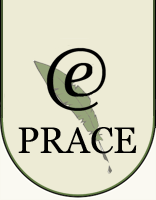
Political system
After gaining independence, Ghana adopted a parliamentary system based on that of Great Britain. Since that time, there have been alternating military and civilian governments. Only in 1992 the new Constitution of the Republic of Ghana was enacted by which democratic rule was reinstated in the country. In the following year the Fourth Republic was established under the leadership of Jerry John Rawlings and the National Democratic Congress (NDC). With the elections in December 2000 power was handed over to J.A. Kafour and his New Patriotic Party (NPP) (Salm 2002:17).
The constitution divides state power into three branches: executive (president and government), legislative (parliament) and judiciary (courts). The parliament consists of 200 members who together with the president are voted for in separate elections by universal suffrage.
As far as the administrative division is concerned, the country is made up of ten regions and 110 districts, each having its own district assembly. Each of the ten administrative regions is headed by a regional secretary and some of them have preserved their names from the colonial period, which leads to some geographic confusion since, just to give an example, Volta Region can be actually found to the east of the Eastern Region; the Central Region is central only to the southern coast; and Upper East together with Upper West Region are further north than the Northern Region. Each of the regions mentioned above has its own regional coordinating council, among which a regional secretary, deputies, district secretaries, presiding members of the district assemblies and at least two chiefs are appointed. The role of the council is to introduce regional projects and harmonize the programs of the district assemblies with national development policies (ibid 2002:18).
The legal system of Ghana is not subordinate to any of the other branches of government. The court hierarchy is as follows: the Supreme Court of Ghana, the Court of Appeal, and the High Court of Justice. Towns and villages are represented by local, district and traditional courts, the last ones composed of the National House of Chiefs, the regional houses of chiefs, and traditional councils. Apart from that there are also quasi-judicial institutions and agencies subordinated to churches and shrines.
The 1992 constitution turned out to be advantageous also for town and the country since owing to its regulations the institution of chieftaincy is protected and the use of customary law and traditional councils sanctioned. Although the National House of Chiefs has neither executive nor legislative power, still, it provides advice on matters concerning customary law and chieftaincy. Other aims of the constitution include protection of fundamental human rights, outlawing discrimination based on gender, age, culture, disability or sickness, and guaranteeing freedom of speech and the press (Curlin 1995:655-662).
The Republic of Ghana maintains a strong position in world politics as a member of international organizations such as the United Nations (UN), the Commonwealth of Nations, and provider of financial assistance for refugees from other African countries. It also played an important role in mediating in Sierra Leone and Liberia. Ghanaian troops are involved in numerous UN peace keeping missions in Asia, Africa, the Middle East and Europe. It is a matter of pride for the Ghanaian that their compatriot, Kofi Annan held the position of Secretary General of the UN from January 1997 and won the Nobel Peace Prize in 2001 (Salm 2002:29).
komentarze
Copyright © 2008-2010 EPrace oraz autorzy prac.